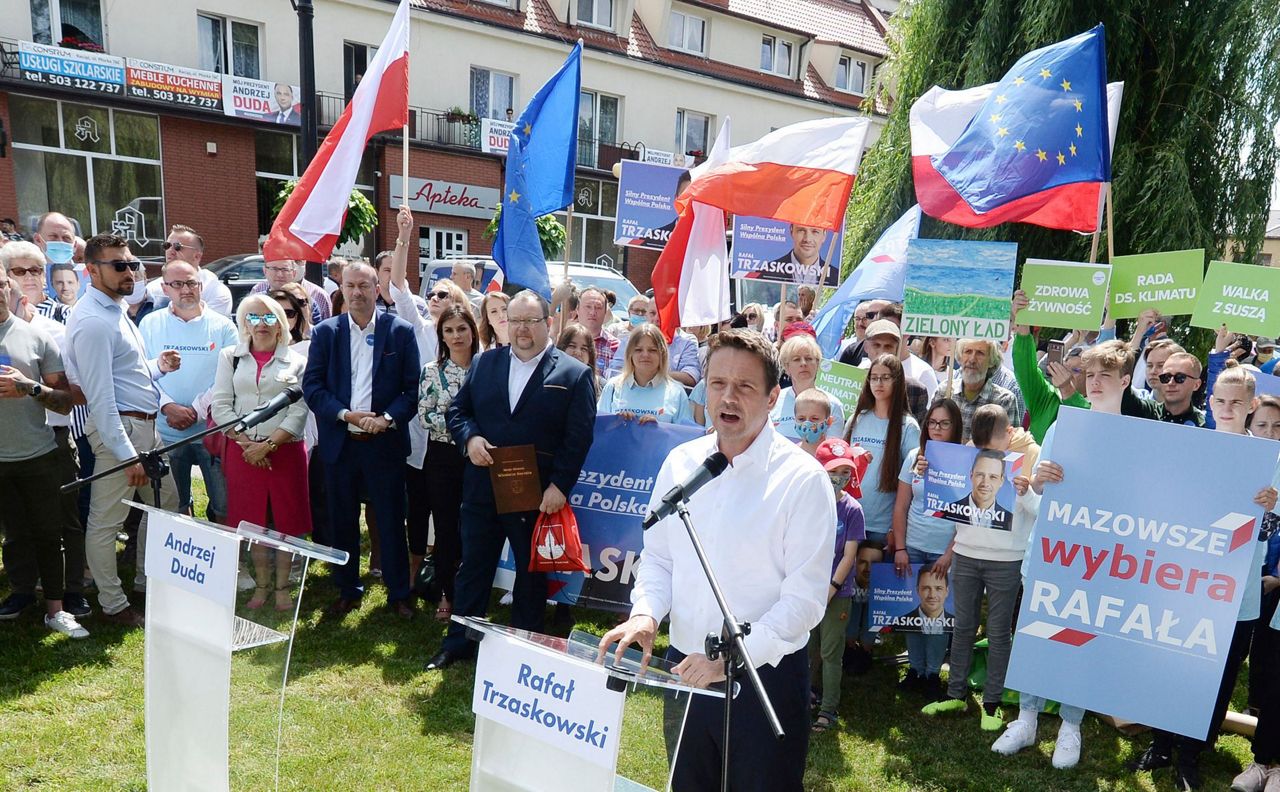Is Poland's Election Runoff A Turning Point For Right-Wing Populism In Europe?

Table of Contents
The Rise of Right-Wing Populism in Poland and its European Context
The rise of right-wing populism in Poland is intrinsically linked to the Law and Justice party (PiS), which has held power since 2015. PiS's success stems from a potent mix of nationalist rhetoric, socially conservative policies, and a critique of perceived liberal elites both domestically and within the European Union. This trajectory mirrors similar trends across Europe. The party's policies, often criticized for undermining the rule of law and democratic norms, have resonated with a significant portion of the Polish electorate.
This isn't an isolated phenomenon. Right-wing populist movements have gained traction across Europe, showcasing a broader trend of Euroscepticism and a pushback against established political structures. Consider the success of Viktor Orbán in Hungary and the rise of Matteo Salvini in Italy – these movements share common threads with PiS, utilizing similar strategies and exploiting similar anxieties.
- Key figures in Polish right-wing populism: Jarosław Kaczyński (PiS leader), Mateusz Morawiecki (Prime Minister).
- Comparison with similar movements in other EU countries: The similarities between PiS, Fidesz (Hungary), and the Lega (Italy) include a focus on national sovereignty, anti-immigration stances, and challenges to EU institutions.
- Impact on EU institutions and policies: The actions of these parties have led to increased tensions within the EU, particularly regarding the rule of law and democratic principles. This has strained relations and created significant challenges for EU policy-making.
Analyzing the Polish Election Runoff: Key Issues and Voter Sentiment
The Polish election runoff saw intense debate on several crucial issues. EU relations remained a central theme, with differing perspectives on Poland's role within the bloc and the acceptance of EU regulations. The rule of law, a long-standing point of contention between Poland and Brussels, also featured prominently. Furthermore, social issues, such as abortion rights and LGBTQ+ rights, played a significant role in shaping voter opinions. Finally, economic policies and their impact on different segments of the population also figured heavily in the campaign.
Understanding voter sentiment requires analyzing diverse demographics. Rural voters, often feeling neglected by the urban centers, showed a strong inclination towards the ruling party. Younger voters, however, displayed a more complex picture, with a significant portion expressing dissatisfaction with the government's performance.
- Analysis of key policy positions of the candidates: A comparative analysis of the candidates’ stances on EU membership, judicial reforms, and social policies would provide a clearer picture of the electorate’s choice.
- Breakdown of voter demographics by age, region, and socioeconomic status: Detailed polling data and exit polls are crucial for interpreting the vote distribution and identifying key demographic shifts.
- Public opinion polls and their reliability: Analyzing the accuracy and potential biases in pre-election polls is important for understanding the reliability of public opinion data.
Potential Implications for the Future of Right-Wing Populism in Europe
The Polish election runoff presents two potential scenarios. Scenario 1: A victory for the ruling party could embolden other right-wing populist movements across Europe, potentially strengthening their alliances and providing a blueprint for future electoral successes. Scenario 2: A change in government could represent a setback for right-wing populism, potentially influencing other elections and weakening the overall influence of these movements.
- Scenario 1: Continued rise of right-wing populism: This scenario could lead to increased fragmentation within the EU and challenges to its core principles.
- Scenario 2: Weakening of right-wing populism: This scenario could offer a chance for greater EU cohesion and a renewed focus on addressing common challenges.
- Impact on EU cohesion and decision-making: The outcome will significantly influence the EU's ability to formulate effective policies and address challenges facing the bloc.
- Potential impact on international relations: Poland's relationship with its allies and its stance on international issues will be affected by the election outcome.
International Reactions and Global Perspectives
The Polish election outcome will undoubtedly attract international attention. Reactions from other EU member states, particularly those grappling with similar right-wing populist movements, will be crucial to understanding the broader implications. Statements from EU institutions will provide insights into the EU's response to the election results, while reactions from countries with strong right-wing populist movements will reveal the potential for regional alliances and shifts in global political dynamics.
- Statements from EU leaders and institutions: The EU’s reaction will offer insight into its stance on the rule of law and democratic values within member states.
- Reactions from other countries with strong right-wing populist movements: These reactions will signal potential shifts in alliances and collaborations among right-wing populist parties.
- Potential effects on global political alliances: The election outcome could influence relationships with the US, and other international partners, impacting global political alignments.
Conclusion
The Polish election runoff holds significant weight in determining the trajectory of right-wing populism across Europe. The outcome, regardless of the winner, will have profound implications for the EU's future and the broader global political landscape. Whether it marks a turning point remains to be seen, requiring ongoing analysis of its ripple effects on other national elections and EU policy. Further research and observation are crucial to understand the long-term impact of this pivotal Polish election runoff on the future of right-wing populism in Europe. Stay informed about developments regarding the Polish election and its implications for right-wing populism in Europe. Understanding this election’s impact is vital for navigating the evolving political landscape of Europe.

Featured Posts
-
 Kawasaki Disease A Novel Respiratory Virus As The Culprit
May 30, 2025
Kawasaki Disease A Novel Respiratory Virus As The Culprit
May 30, 2025 -
 3 Olympia Theatre Olly Alexanders Performance In Pictures
May 30, 2025
3 Olympia Theatre Olly Alexanders Performance In Pictures
May 30, 2025 -
 Hhs Guidance On Transgender Care Controversy And Provider Concerns
May 30, 2025
Hhs Guidance On Transgender Care Controversy And Provider Concerns
May 30, 2025 -
 Polands Presidential Runoff Assessing The Impact On European Maga Populism
May 30, 2025
Polands Presidential Runoff Assessing The Impact On European Maga Populism
May 30, 2025 -
 Understanding Live Now Pay Later Services A Consumers Guide
May 30, 2025
Understanding Live Now Pay Later Services A Consumers Guide
May 30, 2025
